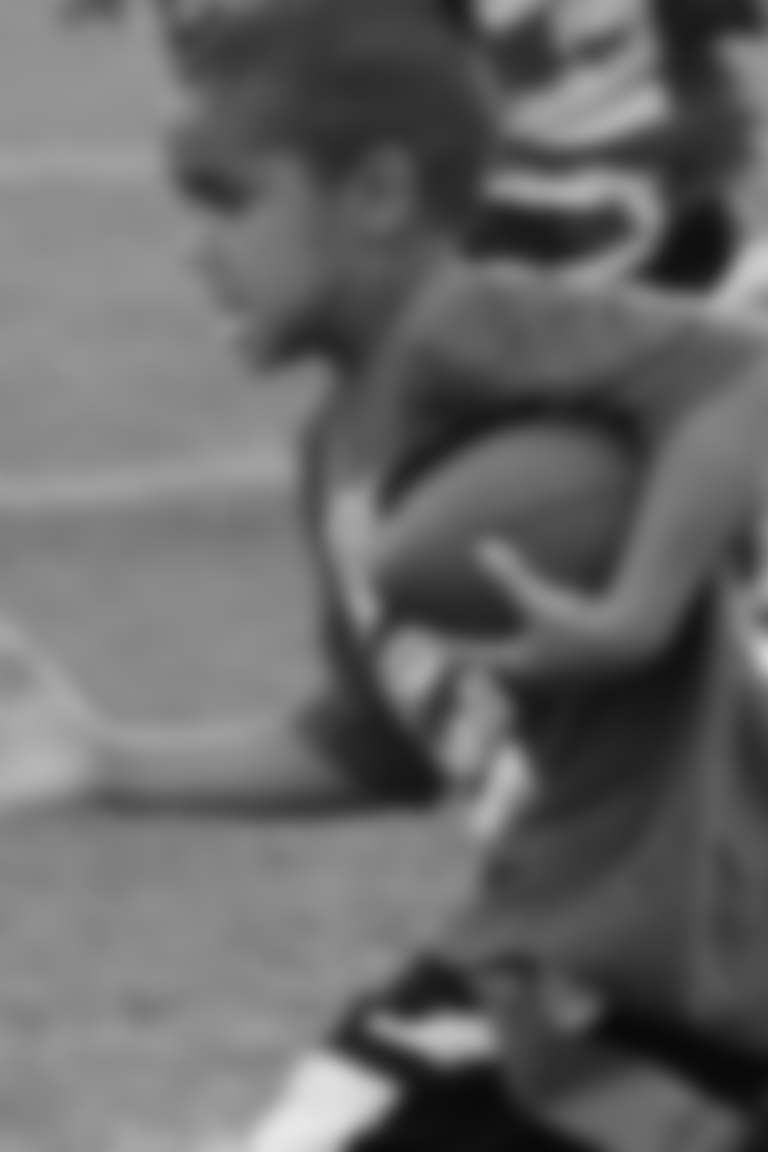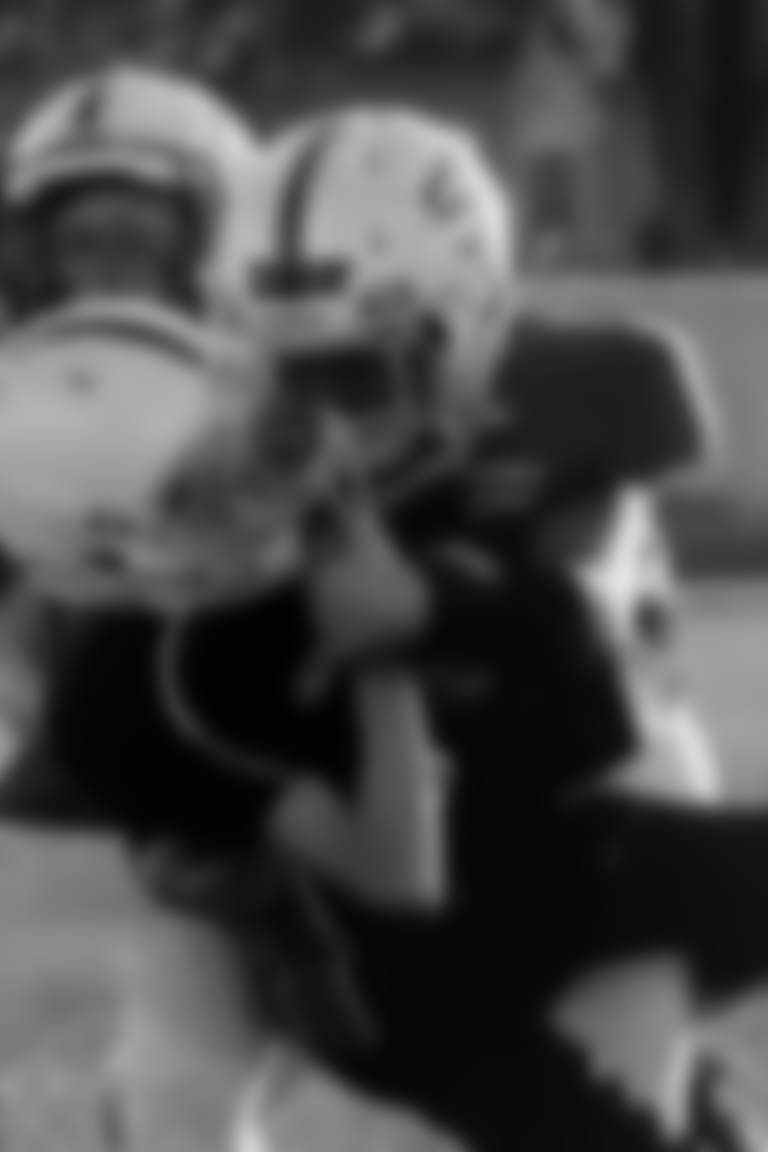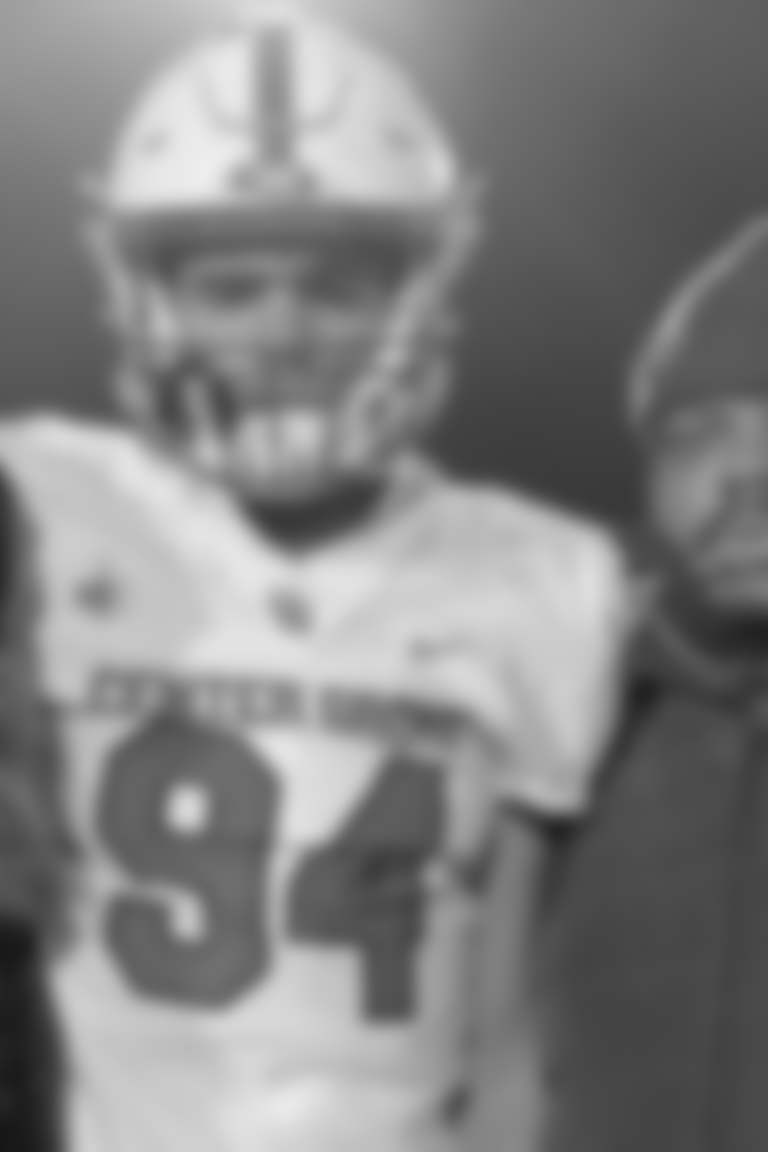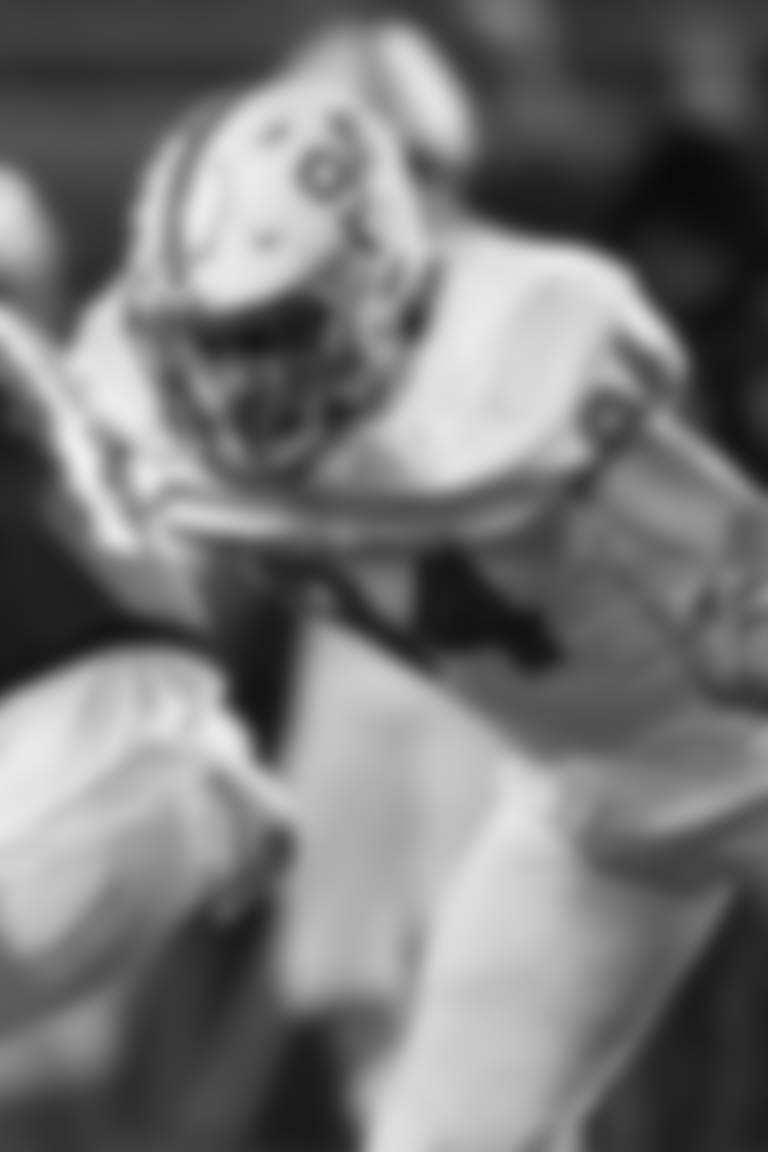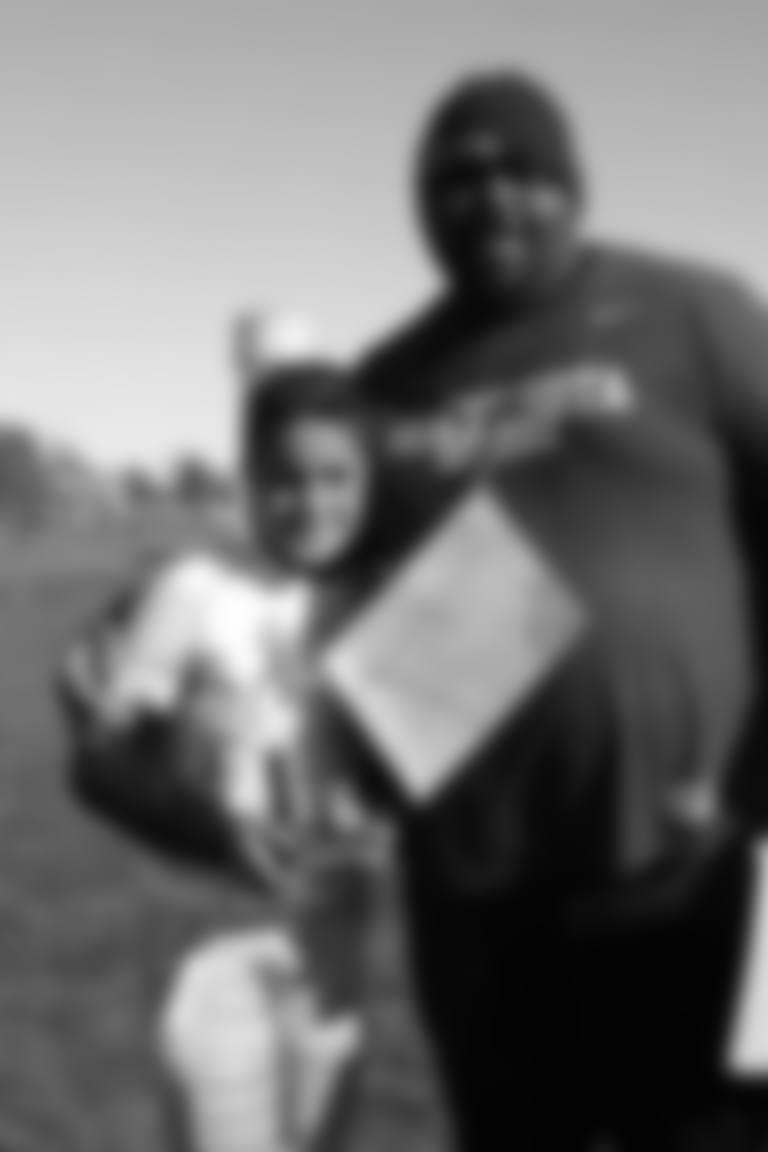Austin Booker's homecoming: Roots, redemption and family
By Gabby Hajduk
Newaygo Drive.
Those two words tattooed on Austin Booker's left forearm hold over a decade of memories, both for him and his parents who watched their son transform from a high-energy kid to a 6-foot-6 NFL player.
"It’s to not forget where I came from. I’m proud to be from Indianapolis." Austin Booker
Booker's childhood home, which is about 10 miles south of downtown Indianapolis, serves as the foundation for his football career. It's where his 'no fear' mentality was born, where his dad taught him the swim move and where he learned to appreciate his roots.
"When I think of Newaygo Drive, it's just motivation to know where I came from," Booker told ChicagoBears.com. "It wasn't great. In Newaygo, we didn't have money, so continuing to have that grind. It's just knowing where I came from and being thankful for where I'm at now."
Along with Newaygo Drive, the entire Indianapolis area is home to Booker and his successes on the field — from YMCA flag football to the Center Grove Bantam Football League (CGBFL) to a Class 6A State Championship win for Center Grove High School.
This Sunday, the rookie defensive end will return to Indianapolis when the Bears face off against the Colts at Lucas Oil Stadium — a place Booker has experienced some of the highest highs and lowest lows of his football life.
While Booker is focused on helping the Bears win, he'll take the field for his third NFL regular-season game with Indianapolis on his mind and body. Literally - the city's skyline inked on his left forearm, just above "Newaygo Drive.
"It's to not forget where I came from. I'm proud to be from Indianapolis," Booker said.





